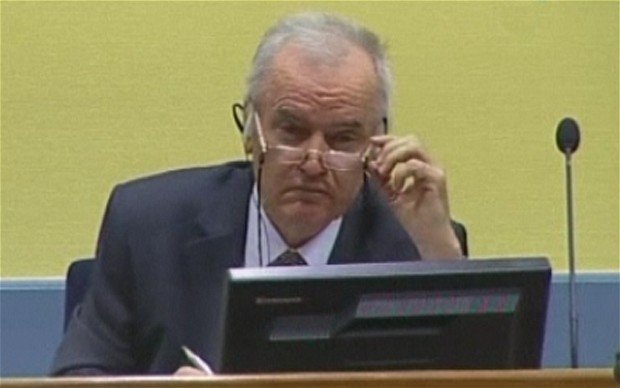Elvedin Pasic is the first witness who has taken the stand in the war crimes trial of former Bosnian Serb army chief Ratko Mladic.
Elvedin Pasic held back tears as he described surviving a mass killing in 1992 in the Bosnian village of Grabovica.
He told the International Criminal Court at The Hague how Bosnia’s ethnic groups lived in peaceful coexistence until the outbreak of war in the 1990s.
General Ratko Mladic is charged with 11 counts of war crimes and crimes against humanity.
Ratko Mladic, 70, denies the charges, which date back to the 1992-95 Bosnian War.
He was on the run for 16 years before his arrest and is one of the last key figures wanted for war crimes during the Bosnian War.

The trial was halted in May because of “irregularities” by the prosecution.
Some of the relatives of victims and survivors of the war have expressed concern that if the trial takes too long, Ratko Mladic, who has suffered from heart problems, will die before a verdict is reached.
Elvedin Pasic, 34, is a Bosniak (Bosnian Muslim) from the village of Hvracani in northern Bosnia. He was a teenager during the war.
He told the court: “Before the war we had a great time. We were playing basketball and football, we used to do everything together. Muslim, Croats and Serbs, we were all having a great time, respecting each other.”
Things began to change in the spring of 1992, he said, when as a 14-year-old boy he first noticed a convoy of soldiers in the uniform of the Yugoslav national army giving Muslims the three-fingered Serbian salute.
Elvedin Pasic went on to describe how bombs were falling on his area during the war and his village was overrun.
He was separated from the other men in his family and later survived the execution of around 150 people in the northern Bosnian village of Grabovica.
Later this week, the court is due to hear from the retired British general, Sir Richard Dannatt, who served as deputy commander of NATO’s force in Bosnia.
However, the Mladic defense team has called for his expert evidence to be thrown out.
There will also be an anonymous witness who survived the 1995 Srebrenica massacre. He is expected to tell the court how he saw prisoners being lined up in groups of 10 and executed.
Around 8,000 Bosniak men and boys from Srebrenica were killed after the town was overrun by Bosnian Serb forces in July of that year – in what was the worst atrocity in Europe since the end of World War II.
